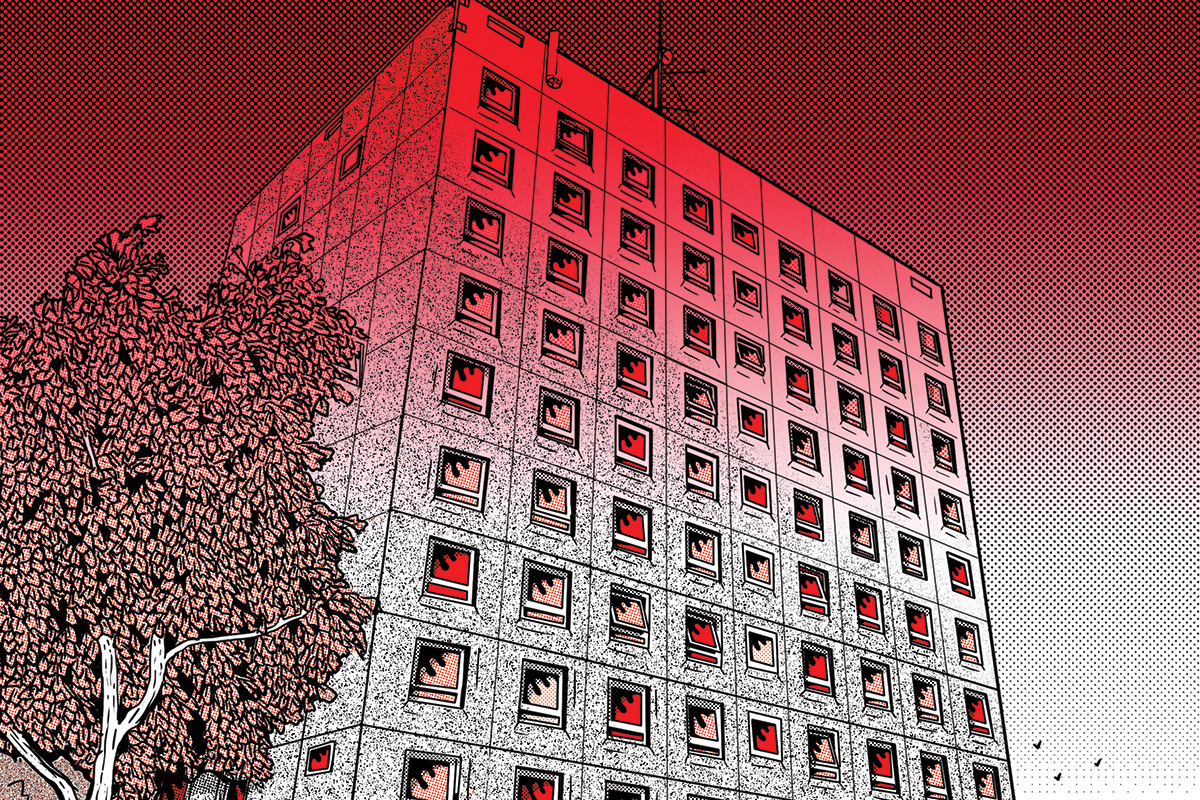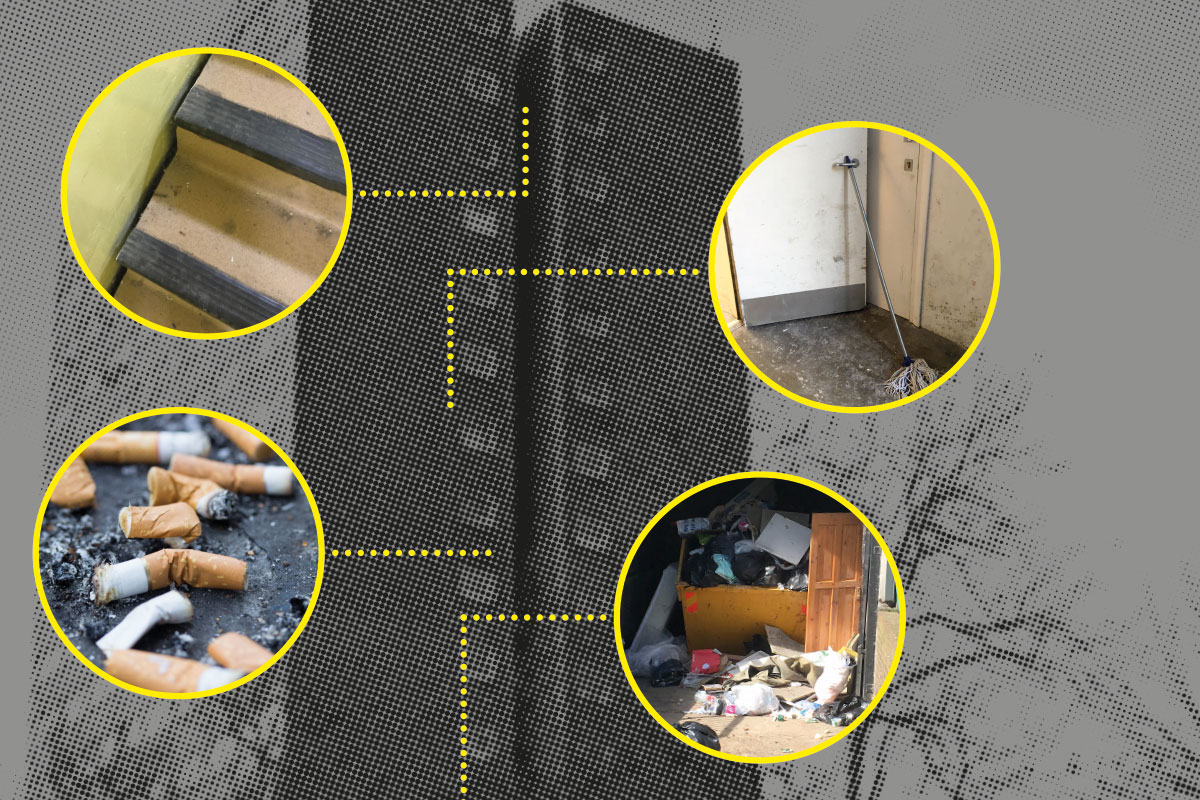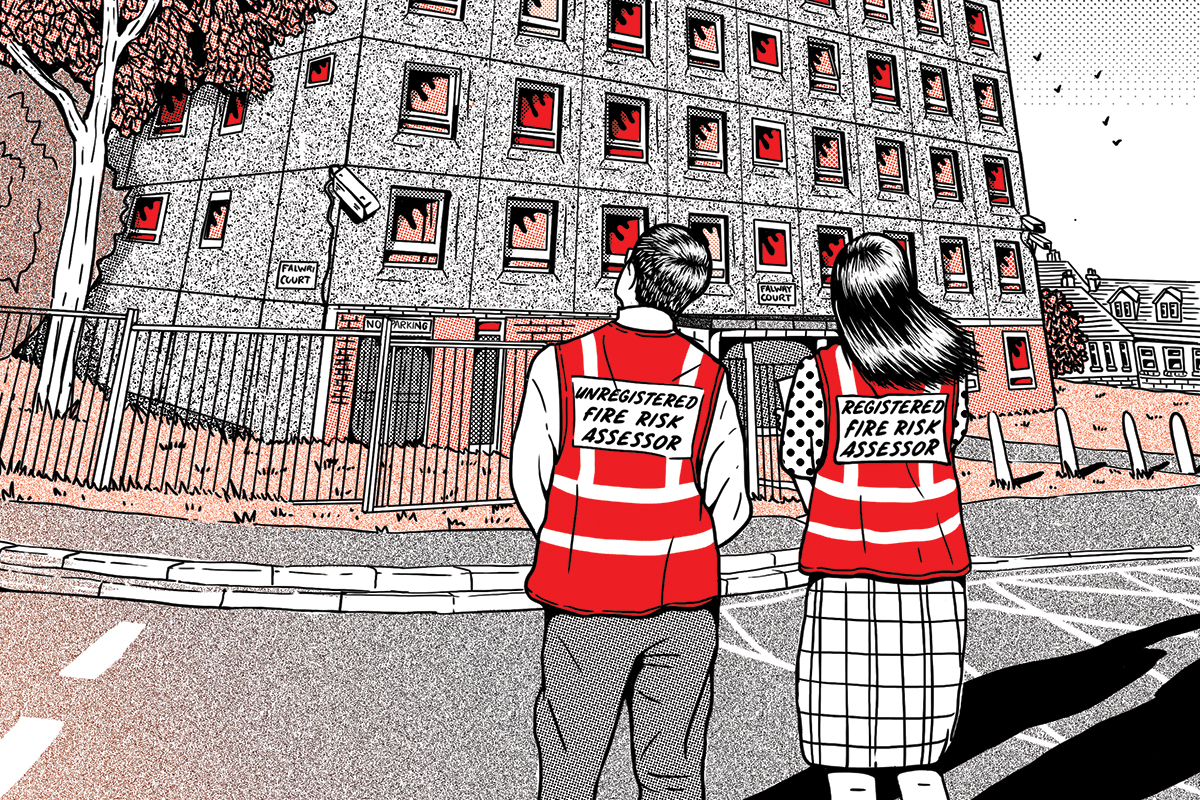You are viewing 1 of your 1 free articles
Time for landlords to fill in their fire risk assessment knowledge gaps
Exclusive Inside Housing research this week reveals many landlords do not know whether the risk assessors they use are registered. Martin Hilditch calls for the knowledge gaps to be filled
One of the most important duties of social landlords is to identify potential threats to people’s lives or safety in their buildings by carrying out fire risk assessments (FRAs).
They are then required to take action to eradicate or mitigate those threats.
It’s disappointing to find out this week then, that there are still gaps in some landlords’ knowledge when it comes to FRAs.
We’ll come to that in a moment. But it’s worth stating that this year marks a decade since Inside Housing first started campaigning around risk assessments.
After the 2009 Lakanal House fire, in which six people died, we called for a national database of all UK tower blocks to be created – with landlords required to confirm that the risks in all blocks have been assessed and when the assessment last happened.
Following the inquests into those who died in the Lakanal House fire, in 2013, coroner Frances Kirkham wrote to the then-secretary of state for communities and local government, Eric Pickles, flagging her concerns about risk assessments.
She said that there was “uncertainty about the scope of inspection for fire risk assessment purposes which should be undertaken in high-rise residential buildings”.
For obvious reasons, national attention was focused on the risk assessment process for tower blocks again following the Grenfell Tower fire in 2017, in which 72 people died.
As part of our Never Again campaign, Inside Housing called for landlords to work with peers to share learning from risk assessments and improve and clarify the FRA model. We also called on assessments to be carried out annually.
These calls aside, there has been so much focus on this nationally that the importance of effective fire risk assessments is well understood.
This is why one of the most concerning findings of Inside Housing’s research this week into fire risk assessments is that 56 out of the 128 councils which responded to our survey didn’t know whether the professionals they used to carry out risk assessments were registered with or accredited by a professional or certification body.
"It is worrying to find that almost half of those surveyed are not easily able to identify whether the professionals they used to carry out FRAs were registered or not"
While accreditation isn’t a legal requirement, it is recommended by bodies like the Fire Risk Assessment Competency Council.
As we say in our article, this offers a third-party seal of approval that the qualifications possessed are relevant, appropriate and up to date.
Irrespective of this, it is worrying to find that almost half of those surveyed are not easily able to identify whether the professionals they used to carry out FRAs were registered or not. Less than two years after Grenfell, one would have hoped landlords would want to know everything about their risk assessors short of their shoe size – and for that information to be easily stored and accessible.
This is an issue that Inside Housing will continue to research throughout 2019. And, if you do have any gaps in your knowledge about your FRAs, it is worth remembering that ultimately it’s landlords themselves which are responsible for ensuring they are adequate.
Martin Hilditch, managing editor, Inside Housing












